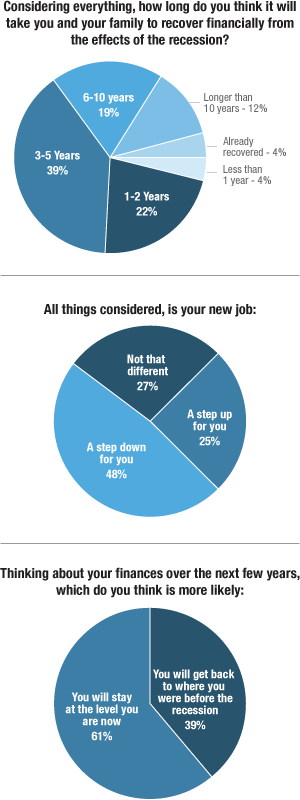How to RecessionProof Your Job and Your Finances NPR
Post on: 5 Сентябрь, 2015 No Comment

Loading
With the unemployment rate at a two-year high and the housing market in a slump, talk of a recession is on the rise. Stephanie AuWerter, editor of SmartMoney . and Stephen Viscusi, author of On the Job. offer tips on what you can do to protect your finances and your job when the economy is looking grim:
Set Up an Emergency Fund. AuWerter recommends having three to six months’ worth of living expenses held in savings or a money market account. In the event that you lose your job, you don’t want to end up tapping your 401K or relying on credit cards. It’s hard to put the money away all at once, AuWerter says, but do it a little at a time and you’ll feel better knowing that you have a cushion.
Be Valuable and Visible at Work. This is a very important time to perfect the art of looking busy, Stephen Viscusi says half-jokingly. Show that you can multi-task. It’s important to be visible, so if you’re working from home or from a distance, make sure that out of sight doesn’t mean out of mind. Remember that human beings make firing decisions, so don’t have a bad attitude and don’t be a high-maintenance employee. It’s the time to get close to your boss, Viscusi says, Have that nose as brown as possible. (You can read more job tips in Viscusi’s book, On the Job .)
Invest in Yourself, Your Career. Spending money for additional training to switch careers or bring your skills up to date is a great investment, AuWerter says. There are some industries — she gives nursing as one example — where demand for skilled work is so high that employers will pay for your training.
About to Retire? Adjust Your Portfolio. Babyboomers who are on the verge of retirement should be making adjustments in order to avoid pulling too much out of their portfolios in the first year of retirement. This is particularly true when the stock market is down. Retirement today can easily last 30-40 years; AuWerter says people saving for retirement should have a portfolio mix of cash, bonds and stocks.
Invest in Consumer Staples. Items and services that people need to spend money on, regardless of the health of the economy, often do well during times of recession, AuWerter says. She lists health care, utilities and grocery items such as diapers as examples. Some also argue that beer and cigarettes are good bets when money is tight — When times are rough, people need their vices, AuWerter says.
Avoid Investing in Retail and Financial Sectors. These markets are taking a big hit right now, AuWerter says; though it is likely that there is money to be made here in the long term, it’s going to be a rough ride. She says that average investors who don’t have the stomach for volatility should avoid these sectors.
Rent or Buy? AuWerter says that if you are going to be in a house for several years — five at least — you are better off buying now than trying to time the market. Trying to time the real estate market is very tricky, she warns. If you are trying too hard to strategize, you may end up sitting out on the sidelines and miss a good window to get in. As long as you have enough of an investment horizon, AuWerter says, buying a house during a recession can turn out OK.
Reduce Your Debt. Viscusi recommends taking one or two credit cards out of your wallet. Leave them in your dresser drawers, he says. After all, if you aren’t carrying them with you, you are less likely to use them. Reduce your debt — and the possibility of going further into debt — as much as possible.














